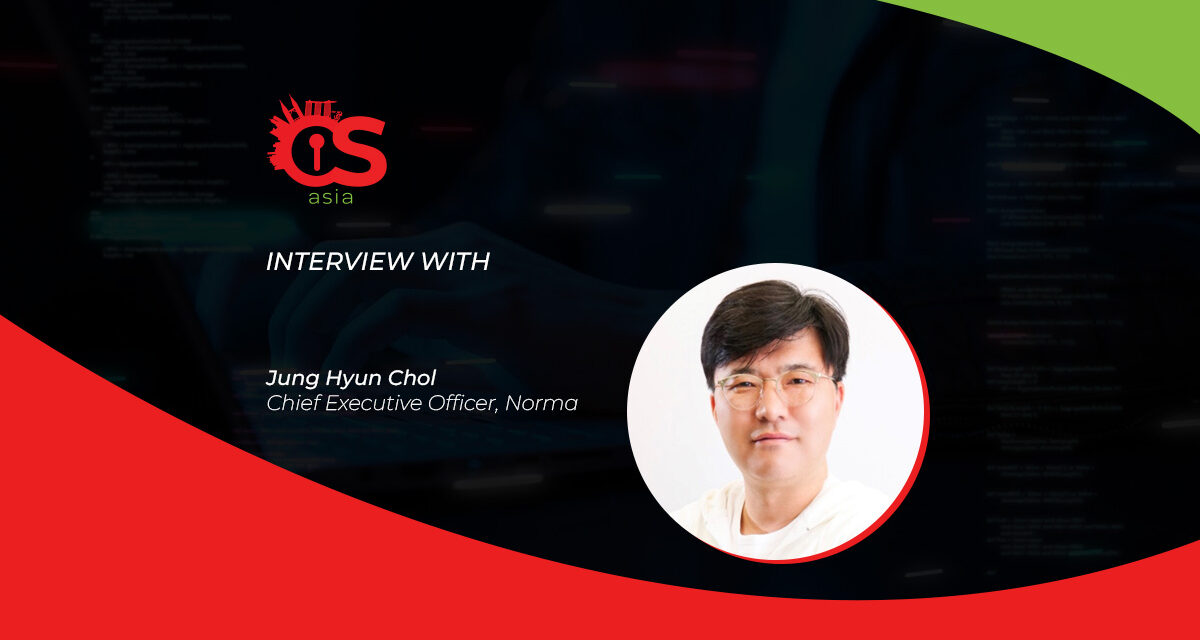Geopolitical agendas aside, the region and its vast resources may become a determinant in how soon quantum computing reaches critical mass.
Quantum computing holds the promise of revolutionizing various fields by solving problems that are currently intractable. It has the potential to accelerate drug discovery, optimize logistics and supply chains, improve financial modeling and optimization, enhance AI/ML, and advance the fields of cryptography and cybersecurity.
What are the various trends and applications of quantum computing research in the Asia Pacific region?
In this Q&A, Jung Hyun Chol, CEO, Norma, shares his insights with CybersecAsia.net on the latest developments, and suggests some possible practical consumer applications that could revolutionize work and play.
CybersecAsia: Can you describe some of the ongoing quantum computing research efforts of global technology companies, and when can we see usable solutions or products for businesses?
Jung Hyun Chol (JHC): IBM has made significant advancements with their cloud-based solution that allows members of the general public to configure and run programs on a 5-qubit quantum computer made available on the web.
Google is working on its “Sycamore”’ quantum processor, focusing on error correction techniques and quantum algorithms for optimization and cryptography.
Microsoft aims for a scalable quantum ecosystem and it is investing in software tools.
Some experts predict that commercially viable quantum computing solutions and applications will emerge for specific use cases within the next decade. While many of the current advancements in quantum technology focus on scientific and computational applications, here are some of the consumer-centric possibilities we can expect in the near future:
- Secure communications: Quantum key distribution (QKD) allows for the secure exchange of cryptographic keys, protecting sensitive data from potential eavesdropping or hacking.
- Quantum-based wearables and IoT: Quantum sensors integrated into wearable devices or IoT applications could offer enhanced monitoring capabilities, including highly accurate measurements of vital signs, environmental data, and the early detection of pollutants or toxins.
- Quantum-based medical imaging: Quantum machine learning can provide better medical image analysis, resulting in a higher degree of personal, tailored medical treatments in the future.

CybersecAsia: What are the major trends in quantum computing development you are seeing in the Asia-Pacific region?
JHC: APAC is embracing quantum computing and related technologies and collaborations, positioning the region as a significant player in the global quantum landscape. For example:
Government investments and initiatives: Many countries in the Asia-Pacific region, including South Korea, China, Japan, and Australia, have recognized the strategic importance of quantum technologies and have made significant investments in research and development. Governments are establishing national quantum initiatives and funding research projects.
- Research and development collaborations: Growing numbers of partnerships are being formed to pool resources, expertise, and funding to accelerate the development of quantum technologies in the region.
- Quantum communication and encryption: Governments and industries in APAC are exploring quantum-resistant encryption methods and developing secure communication networks based on quantum key distribution (QKD) protocols. These efforts aim to enhance data security and take the initiative to be quantum-safe against emerging threats in the digital landscape.
- Quantum computing infrastructure: Several countries in the region are investing in developing their quantum computing infrastructures: building quantum data centers, establishing quantum testbeds, and providing cloud-based access to quantum resources. These initiatives combine to create an ecosystem that supports quantum research, development, and experimentation.
CybersecAsia: What are the major challenges that companies face when it comes to cryptography encryption? Are there specific sectors that can benefit from quantum security solutions?
JHC: When it comes to cryptography encryption, the major challenge is that transitioning to quantum-resistant encryption algorithms is a complex and time-consuming process. It requires updating existing cryptographic systems, protocols, and infrastructure to ensure compatibility and security in a post-quantum computing era.
By raising awareness about the need for post-quantum cryptography and educating stakeholders about the potential risks posed by quantum computing, we can foster collaborations and partnerships between industry, academia, and government agencies to share knowledge, resources, and expertise. These efforts can accelerate the development and deployment of quantum-resistant encryption solutions and ensure a coordinated approach to manage the post-quantum transition.
The sectors that benefit from quantum security solutions deal with sensitive and valuable information that requires robust protection against potential attacks. These include the finance, defense and national security, healthcare, government, energy and utilities, and research and development sectors. Ultimately, sectors dealing with sensitive data, value data integrity, and use cases requiring secure communications can benefit from quantum security solutions.
CybersecAsia: What trends do you observe in quantum security solutions, specifically in the APAC region?
In the APAC region, there are three major trends in quantum security solutions:
- Firstly, QKD deployments are gaining traction as governments and organizations actively implement such systems to enhance communication security in the finance, defense, and government sectors.
- Secondly, there is a growing focus on standardization and regulatory frameworks for quantum security, including establishing guidelines and standards for quantum-resistant encryption algorithms to ensure the interoperability of quantum security solutions.
- Lastly, industry collaborations are driving innovation in quantum security, with firms partnering across sectors to develop tailored solutions, combining the expertise of quantum technology providers, cybersecurity firms, and industry-specific organizations.
Overall, the trends indicate a growing recognition of the potential risks posed by quantum computing and a proactive approach to address these challenges through research, collaborations, and improved developments for standards and talent. This has led to increased focus and investment in quantum security solutions in the Asia-Pacific region.
















